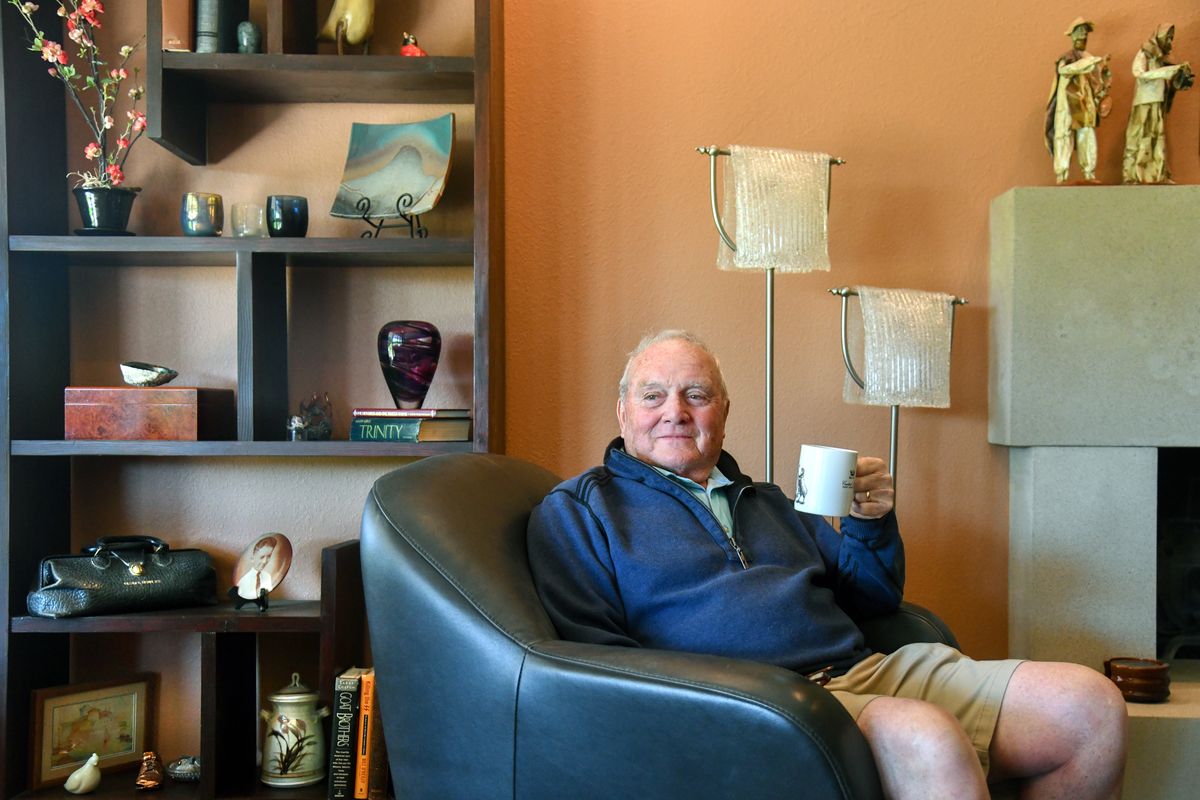After 56 years, Dr. William Brown Jr., 84, is hanging up his stethoscope

The leather doctor’s bag he received as a gift when he graduated from medical school now sits in a place of honor in his living room.
At 84, after a 56-year career as a general practitioner, Dr. William Brown Jr. is hanging up his stethoscope. His last day in his office was Tuesday, but current and former patients have been dropping by for weeks since they heard the news.
“There’s been a lot of hugs and a lot of tears the past few weeks,” Brown said.
Born and raised in Spokane, Brown originally planned to become a pharmacist. He worked at Rosauers, and when the brother of the store’s founder asked what Brown planned to do after graduating from North Central High School, he shook his head at his reply.
“He said, ‘Why don’t you go all the way and be a doctor?’ ” Brown recalled.
So, that’s just what he did. He studied pre-med at Gonzaga University, marrying his high school sweetheart, Judy Evans, when he graduated. Then it was on to medical school at the University of Washington School of Medicine.
After graduating in 1962, he planned to join a practice in Othello. That’s when he received a stark reminder from Uncle Sam.
“I’d signed up for the Berry Plan,” Brown said. “I’d forgotten all about it.” The Berry Plan was a Vietnam War-era program that allowed physicians to defer obligatory military service until they had completed medical school and residency training.
“I got a letter from the Navy saying I had one week to join or I’d be drafted as a private,” Brown said. He signed up immediately and was attached to a Marine base in Yuma, Ariz. He served his time as a general medical officer.
“I got out two weeks before the military froze everything,” he said. From his home in northwest Spokane, Brown pondered the timing. “Who knows what my life would have been like if I’d been sent to Vietnam?”
Instead, he returned to Spokane and joined a practice on Northwest Boulevard, where he earned $900 per month, and treated a host of medical conditions. “We did everything from pediatrics to geriatrics,” he said.
He and Judy had four children and adopted two more. General practice medicine proved a perfect fit for Brown. He removed tonsils, set broken bones and delivered babies. Lots of babies.
He and Dr. Tom Hansen, another NC and UW School of Medicine alum, volunteered countless hours at Booth Women’s Home and Hospital for unwed mothers in north Spokane.
In 1973, Brown’s wife died from a brain tumor, leaving him with six children from toddlers to teens. He cared for them, worked full-time and even managed to make his daughters’ Easter dresses – with a little help from some masking tape for the pleats.
By 1975, he was ready for a change and joined the Hillyard Medical Clinic. “I loved the people in Hillyard,” he said. “Such wonderful, hard-working, honest people.”
While there, he developed what he called “The Downtown Hillyard Paper Bag Spacer,” a paper bag system to help children and adults who had to use asthma and related inhalers, coordinate their breathing.
He married his second wife, Trudi Pearson, in 1979, and they had a son together, bringing his family to seven children.
Two of his daughters worked with him at the Hillyard clinic. His oldest daughter said it was like working in a “MASH” unit because they treated just about everything.
After 25 enjoyable years, it was time to move on. Brown joined Columbia Medical Associates for a time before moving to Providence Family Medicine North, where he’s worked for the past 10 years.
At 65, he decided to cut back to working three days a week. He’d taken up golf at 54, and while he said he initially didn’t like it, he did have fun with his golfing buddies at MeadowWood and Manito. “When I turned 75, I cut back to two days a week,” Brown said.
And he’s still learning new skills. Three years ago, he became a medical review officer for Drug Free Business in Bothell. The company provides third-party administration of drug testing for corporate and small to medium businesses’ drug testing programs.
Brown follows up with those who’ve had positive drug tests, consulting with them by phone and online. “I do that two afternoons a week for two hours,” he said.
He’ll keep doing that, and he still golfs three days a week. Retirement means he’ll have more to time to enjoy woodworking and tackle home and yard projects.
Though he will no longer have office hours, he’s let the folks at Providence know he’s available to fill in when needed.
As Brown reflected on his 56-year career, he said one of the biggest changes in medicine has been the advent of computers and electronic records.
“Our records used to be on 6-inch-by-8-inch lined cards, and each line was one office visit,” he said. “Now it takes three pages per visit. Medicine wasn’t as complicated then.”
He’s treated generations of families, and outlived many of his patients, and most of his business partners. Even so, it’s been difficult for him to shut his office door for the last time. When asked what he’ll miss most, Brown didn’t have to think about it.
“My patients – they’re just like friends,” he said. “I just hate to leave medicine.”
Cindy Hval can be reached at dchval@juno.com.